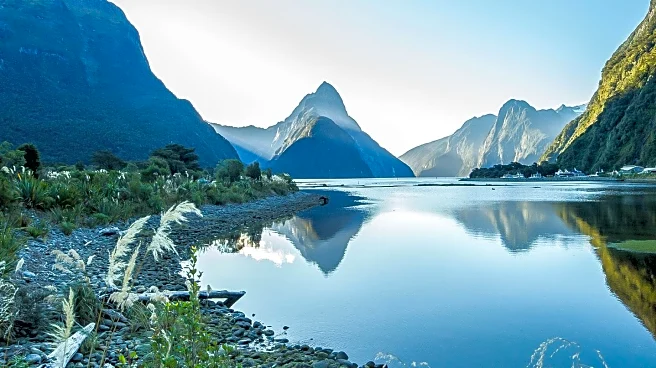What's Happening?
New Zealand has launched a nationwide campaign to eradicate all invasive species by the year 2050. This initiative is one of the most ambitious conservation efforts globally, aiming to protect the country's
rich biodiversity. New Zealand is home to over four thousand native species that are currently threatened or at risk of extinction due to invasive species. The plan involves a comprehensive extermination strategy to reverse the ecological damage caused by these non-native species. The project is a significant undertaking, requiring extensive resources and coordination across various sectors to achieve its goals.
Why It's Important?
The eradication of invasive species in New Zealand is crucial for preserving its unique biodiversity, which includes many species found nowhere else on Earth. The success of this initiative could serve as a model for other countries facing similar ecological challenges. By protecting its native species, New Zealand not only safeguards its natural heritage but also supports its tourism industry, which relies heavily on its pristine natural environments. The project also raises important questions about the extent to which humans should intervene in natural ecosystems to correct past environmental mistakes.
What's Next?
As New Zealand progresses with its eradication plan, the country will need to address various challenges, including securing funding, developing effective extermination methods, and managing public support. The initiative will likely require international collaboration and the sharing of best practices. Monitoring and evaluation will be critical to assess the project's impact and make necessary adjustments. The global conservation community will be watching closely to see if New Zealand can achieve its ambitious goal and what lessons can be learned from its efforts.
Beyond the Headlines
The ethical implications of New Zealand's eradication plan are significant, as it involves the deliberate removal of entire species from ecosystems. This raises questions about the moral responsibility of humans to rectify ecological imbalances they have caused. Additionally, the project highlights the broader issue of biodiversity loss and the urgent need for global action to protect endangered species. The long-term success of New Zealand's initiative could influence international conservation policies and inspire similar efforts worldwide.











